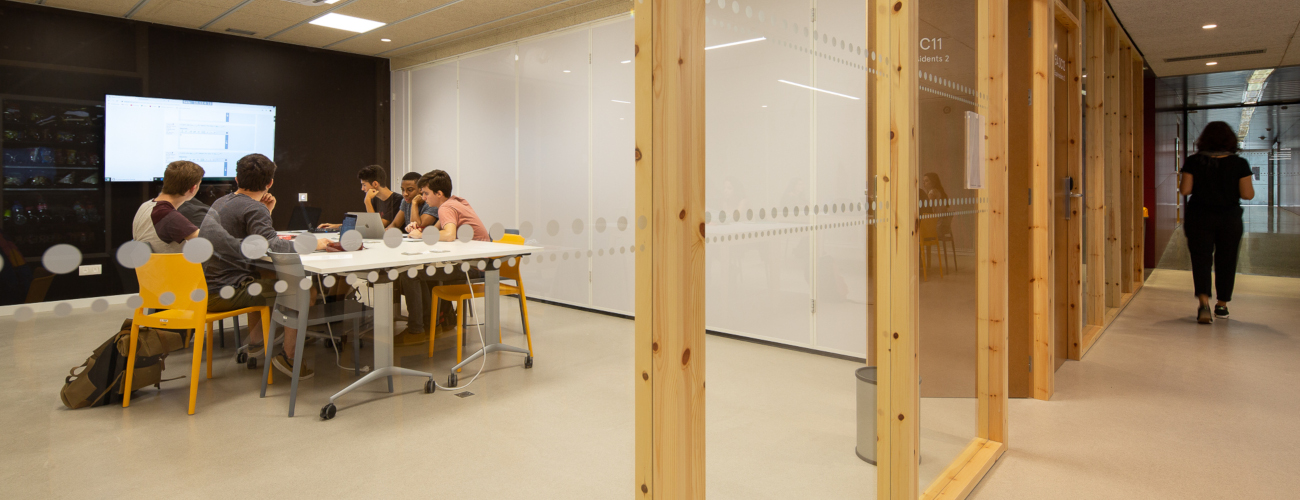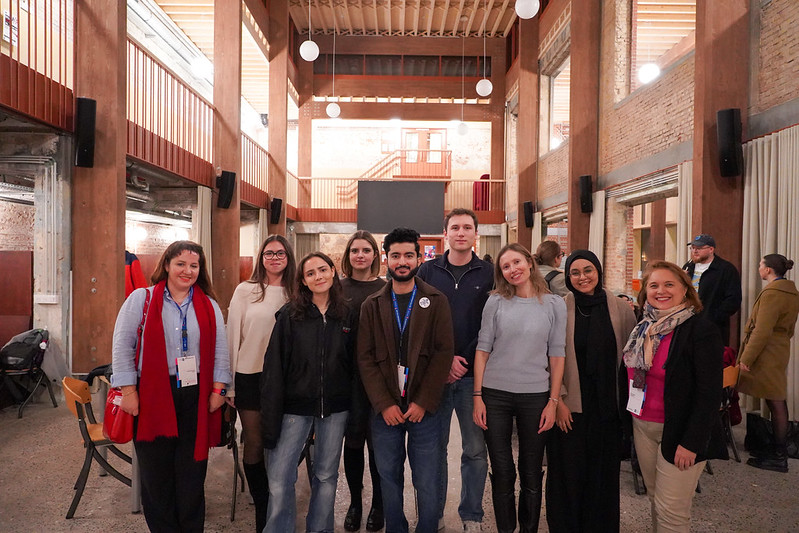
The EUTOPIA alliance will celebrate the EUTOPIA Placemaking Challenge Hackaton programme among the six partner universities as part of the Open Innovation Challenge. The event will take place simultaneously from February 23 to 25 at the different headquarters of the participating universities. In the case of UPF, it will be held in the Workshop Area of the Poblenou campus.
The challenge’s theme will be innovative contracting within the coordinated distribution of goods. This event is part of the Working Package 4 of EUTOPIA, led by UPF and entitled Place-making, whose mission is to generate links and connections with the territory.
In a hybrid format, six teams from Warwick, Cergy Paris, Gothenburg, Ljubljana, Brussels Vrije and Pompeu Fabra will meet in person at their respective universities. Students will get in touch with contractors, will interview them online, and their job will be to present an ideal and creative scenario of what society can be like through the ideas and perspectives that are created about hiring. Following the Hackathon, procurement managers will analyze the material and use it to inspire future acquisitions.
Anais Tarrago, director of the Pompeu Fabra University Foundation and facilitator of the UPF group that will take part in the Hackathon, explains that this event will be “an opportunity to work with real challenges and find real solutions to work with bidders and agents of markets that exist today, and do it quickly, creatively and as a team”. “We will generate”, she adds “the most accurate possible experience of reality in terms of public and innovative procurement: we will put students in front of the situation that any public administration is in when it comes to resolving any thematic”.
Anais Tarrago: "What we will do is generate an experience as faithful as possible to reality in terms of public and innovative procurement"
The University of Gothenburg organizes the Hackathon, so all prosecutors and stakeholders will be from Sweden and real market players. In three days, participants will find solutions to a process that usually takes six months. “We will work with what in Sweden is called true experiencie,” says Tarrago, and the goal will be to end up with a map of all the solutions that students will have found.
The Hackaton process will be divided into three phases: the framing of the problem, the development of the idea, and the creation of a prototype. The six topics they will work on are
environment, competitiveness, economy, road safety, work environment and
e-commerce.
The four UPF participants are Nil Codina, Carlota Garcia and Gabriel Ivins, undergraduate students in Global Studies, and Laia Hoyos, an undergraduate student in International Business and Marketing at ESCI. The four students will meet intensively in the Workshop Area. “We didn’t choose the Random Workshops Area,” explains Tarrago.
On February 21, all students will have a preparatory session to learn the methodology and the digital tools used to develop the Hackathon. However, it will not be until the 23rd that they will know the specific problem they will have to work on for the next three days.
An article originally published by the UPF in Catalan:
bit.ly/3JGwBoV

